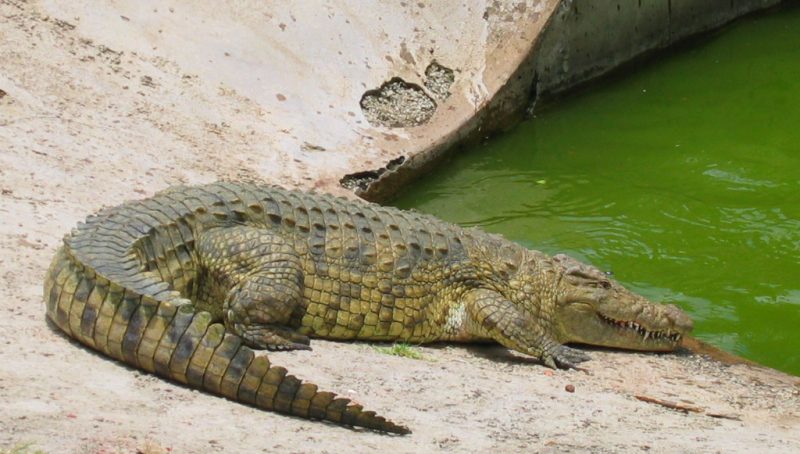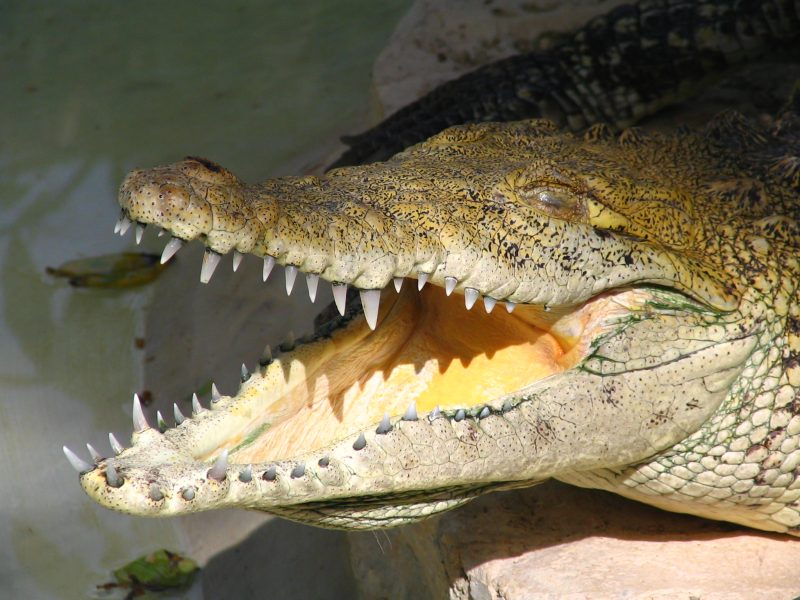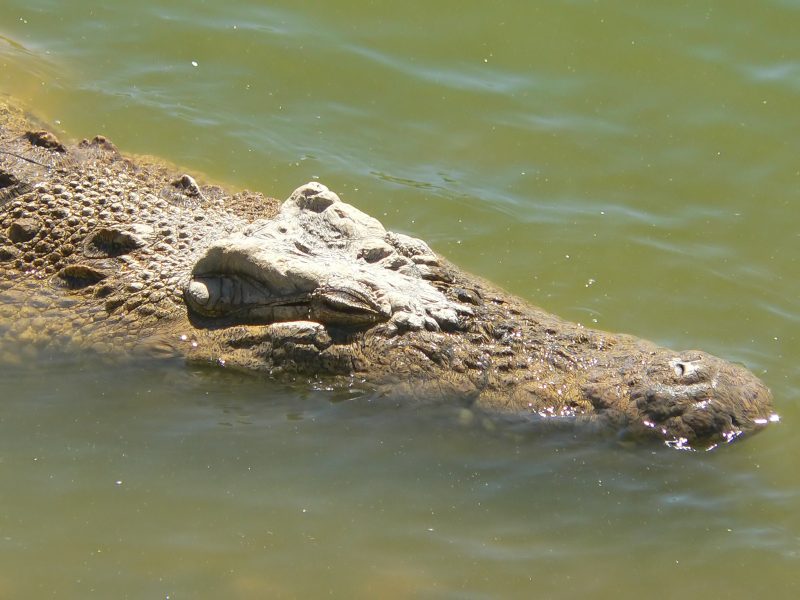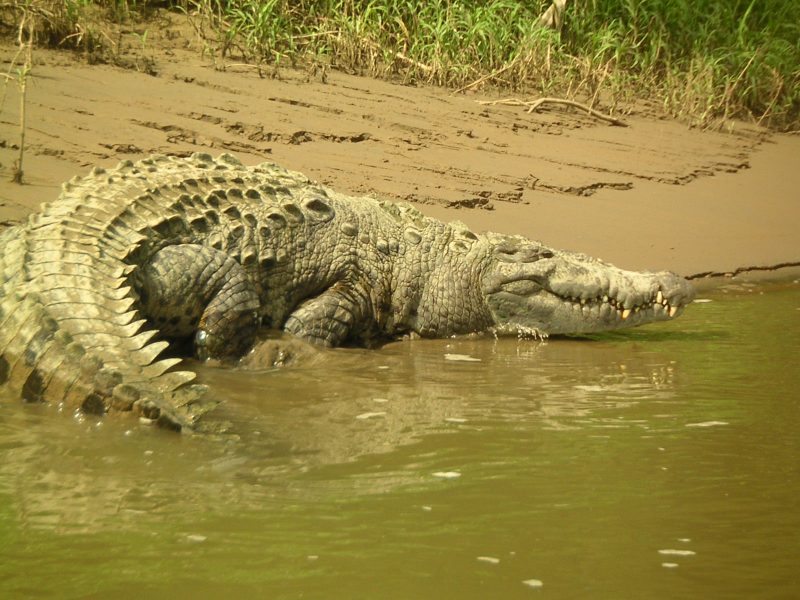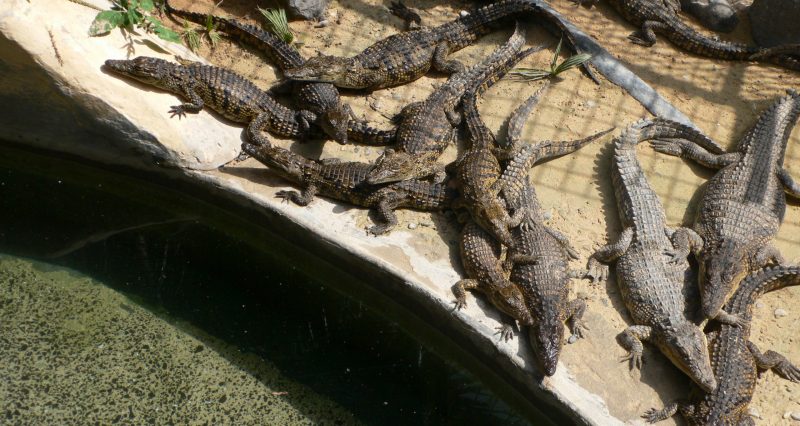Psychoticism In Relation To Crocodile Symbolism
Crocodiles are powerful creatures that stand for various symbolic meanings across different cultures and belief systems. Known for their ancient, primal instincts, these reptiles evoke a sense of danger, survival, and resilience. In the realm of symbolism, the crocodile carries multiple layers of significance, from representing hidden dangers to embodying inner strength. In this article, we will explore the 10 most frequently asked questions about crocodile symbolism. They shed light on the deeper meanings behind these reptiles and how they can connect with human experiences. We will also explore the concept of psychoticism in relation to crocodile symbolism, offering insights into how these ideas intersect.
1) What does crocodile symbolise in relation to psychoticism?
Crocodiles have been symbolic in various cultures, representing a combination of traits, including survival, power, and ancient wisdom. In psychoticism, the crocodile symbolises strength, persistence, and resilience. These reptiles have incredible survival skills, patience, and ability to remain calm under pressure.
In many Indigenous cultures, the crocodile represents protection and guardianship. It particularly safeguards one’s emotional and physical well-being. As apex predators, crocodiles can also symbolize dominance, a fierce nature, and the ability to overcome obstacles that seem insurmountable.
Additionally, crocodiles are symbols of deep, unconscious forces, like repressed emotions or desires. Just as a crocodile lurks beneath the water’s surface, its symbolism can point to things hidden in the subconscious mind. These are things we may be avoiding or not fully aware of.
2) What is the connection between crocodile spirit animal and survival?
The crocodile spirit animal have an instinctual drive for survival. Crocodiles are ancient creatures that have survived for millions of years, adapting to various environments. They have evolved into the planet’s most resilient predators. When the crocodile appears as a spirit guide, it encourages individuals to tap into their survival instincts. This is especially when facing difficult situations.
The symbolism of survival also ties into the ability to endure and persevere through life’s challenges. A crocodile waits patiently for the perfect moment to strike. Similarly, this spirit animal teaches patience, caution, and awareness in the pursuit of goals. It also serves as a reminder that survival sometimes requires acting swiftly and decisively when the time is right.
3) What does it mean to dream about a crocodile?
Dreams about crocodiles are often intense and filled with symbolism. This indicates that the dreamer may be grappling with unresolved issues, hidden fears, or personal dangers. A crocodile in a dream may represent a hidden threat. There could be something lurking beneath the surface of your life that you need to confront. This might relate to emotional challenges, a toxic relationship, or a situation in which you feel trapped.
However, crocodile dreams are not always negative. If the crocodile appears calmly, it may symbolize a deeper connection with your primal instincts and intuition. The dream could be asking you to pay closer attention to your inner wisdom and take action from a place of strength and confidence.
If the crocodile is attacking or aggressive, it may indicate that you are facing overwhelming challenges or threats in your waking life. On the other hand, if you observe the crocodile without fear, it might suggest that you are on the verge of confronting and overcoming your inner fears.
4) What does crocodile represent in various cultures?
Across cultures, the crocodile holds different meanings, often reflecting the values and beliefs of the people. Here are some examples of what crocodile stand for in different cultural contexts:
- Ancient Egypt: In Ancient Egyptian mythology, the crocodile was associated with the god Sobek, who was a god of fertility, water, and protection. Sobek was depicted as a man with the head of a crocodile or as a full crocodile. This symbolism emphasised the crocodile’s connection to the Nile River and its role as a protector of both the pharaoh and the people.
- Native American cultures: In Native American symbolism, the crocodile is often seen as a representation of survival and power. It embodies strength, protection, and the ability to adapt to different environments. The reptile’s connection to water also ties it to emotional depth and intuition, making it a powerful symbol for those seeking spiritual guidance.
- African traditions: In many African cultures, the crocodile is revered as a symbol of guardianship and ancestral wisdom. It is seen as a protector of sacred spaces and is often associated with the wisdom of ancestors who continue to guide and protect their descendants.
- Hinduism: In Hindu mythology, the crocodile is often seen as a symbol of the destructive power of the god Vishnu. It represents the balance between creation and destruction, as the crocodile has the ability to both sustain life and take it away when necessary.
5) What is the psychological meaning of crocodile?
In psychological terms, the crocodile can be seen as representing repressed emotions, unconscious desires, and the darker aspects of the psyche. It symbolizes the hidden, often uncomfortable feelings that lie beneath the surface of our consciousness. Just as a crocodile waits patiently beneath the water, these emotions may be waiting to emerge and disrupt our peace of mind.
The crocodile can also represent the primitive, instinctual side of the psyche, highlighting the need to be aware of our survival instincts. It serves as a reminder that while we may operate from a place of rationality, we must not ignore the primal aspects of our being, including our gut feelings and inner wisdom.
6) How does crocodile symbolism relate to the concept of psychoticism?
Psychoticism is a psychological term that refers to a personality trait characterized by impulsivity, aggressiveness, and a lack of concern for social norms. In this context, crocodile symbolism may have an intriguing connection to psychoticism particularly when considering the darker, more aggressive aspects of the crocodile’s nature.
Crocodiles are known for their sudden, violent strikes and intense survival instincts. This aggressive side could mirror the traits of psychoticism, which involves unpredictable behavior, a tendency toward risk-taking, and emotional detachment. Individuals who identify with or experience the symbolism of the crocodile may feel driven by these primal, unchecked impulses, seeking dominance or control over their environment.
At the same time, the crocodile’s patience and calculated movements show that psychotic tendencies are not always about irrational or hasty actions. Sometimes, psychoticism manifests in long-term, subtle manipulation or cold calculation—traits that a crocodile, as an apex predator, may also represent. Understanding this duality can provide insight into one’s behavior or mindset and offer a deeper look into the psychological forces at play.
7) Is the crocodile a symbol of transformation?
Yes, the crocodile can symbolize transformation, particularly because it represents both the ancient and primal forces of nature. In the wild, crocodiles undergo metamorphosis during their early life stages, transitioning from eggs to hatchlings and eventually maturing into apex predators. This process of growth and evolution is mirrored in human experiences of personal transformation.
When the crocodile appears in your life as a spirit guide, it may signify that a significant change or transformation is imminent. This could involve letting go of old emotional baggage, overcoming obstacles, or undergoing a deep personal evolution. It encourages individuals to embrace change and trust that they are resilient enough to navigate the unknown.
8) What does the crocodile symbolise in relationships?
In relationships, the crocodile symbolizes the importance of maintaining boundaries, protecting oneself, and using instincts to navigate emotional dynamics. If the crocodile appears in your life during a relationship, it may be urging you to pay attention to potential threats or unhealthy behaviors, whether from others or within yourself.
The crocodile’s calm demeanor also suggests the need for emotional self-control and patience in relationships. Just as a crocodile waits for the right moment to strike, it might indicate the need for careful consideration and timing in addressing important issues or conflicts.
The crocodile can also symbolise protection within relationships, suggesting that you or a partner need to take on a more protective or nurturing role to ensure the relationship’s safety and stability.
9) What is the significance of the crocodile in water?
Water is an essential part of crocodile symbolism, as we normally see these creatures in water bodies like rivers, swamps, and lakes. In many spiritual practices, water symbolizes emotion, intuition, and the unconscious mind. The crocodile’s habitat in water ties it to these concepts, making it a powerful symbol of emotional depth, inner wisdom, and the flow of life.
The crocodile in water also emphasises the balance between stillness and movement. Crocodiles often float calmly in the water, representing the idea of emotional equilibrium. At the same time, they are able to move with sudden swiftness and precision. This signifies the importance of acting decisively when the time is right.
10) How can crocodile symbolism help with personal growth?
Crocodile symbolism offers powerful lessons in self-preservation, emotional balance, and personal strength. You may be facing challenges or emotional turmoil. The crocodile encourages you to tap into your survival instincts and remain patient. Trust in your ability to persevere, even when the path forward seems unclear.
The crocodile also teaches the importance of confronting the hidden or repressed aspects of yourself. Acknowledge and deal with your fears, anxieties, or unresolved emotions. You can then transform them into sources of power and resilience. This process of self-awareness and personal growth aligns with the crocodile’s symbolism of survival and transformation.
Summary
Crocodile symbolism is rich and multifaceted, offering insights into survival, transformation, and the hidden forces of the unconscious mind. By exploring the 10 most frequently asked questions about crocodile symbolism, we can uncover the deeper meanings. Behind the rough facade of these powerful creatures lies the connection with our personal experiences.
Incorporating the concept of psychoticism into this symbolism adds another layer of complexity. It highlights the psychological aspects of aggression, impulse control, and emotional detachment. Ultimately, the crocodile represents transformation, protection, and confronting our primal instincts. Its symbolism offers valuable guidance in navigating life’s challenges and opportunities for growth.

